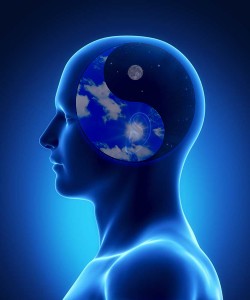DEPRESSION
What is depression?
Depression is classified as a mood disorder. It may be described as feelings of sadness, loss, or anger that interfere with a person's everyday activities.
It's fairly common. Ever since the pandemic hit India over ten months back, followed by an unprecedented lockdown, stress levels have been on the rise with 43% Indians suffering from depression according to a new study.
According to the study, 26% respondents were suffering from mild depression, 11% were feeling moderately depressed, and 6% were facing severe symptoms of depression. People experience depression in different ways. It may interfere with your daily work, resulting in lost time and lower productivity. It can also influence relationships and some chronic health conditions.
It's important to realize that feeling down at times is a normal part of life. sad and upsetting events happen to everyone. But if you're feeling down or hopeless on a regular basis, you could be dealing with depression.
Causes of depression.
There are several possible causes of depression. They can range from biological to circumstantial.
- Family History - You're at higher risk for developing depression if you have a family history of depression or other mood disorders (circumstances). In some cases, depression can be heredity as the adults of the family might have suffered from depression. Or another reason can be circumstances of the family. It is obvious that if any member of the family is going through financial crisis, or there is any kind of dispute in the family, one or more members can suffer depression.
- Early Childhood Trauma - Some events affect the way your body reacts to fear and stressful situations. As mentioned before, kids are more prone to depression if not handled with care. Even small incidents can affect them in a bad way. Children get upset when something not of their wish happens in school. They need special treatment and care at this moment. They can be bullied in school or somewhere else like grounds or parks. This pushes them into the ocean of depression.
- Brain Structure - There's a great risk of depression if the frontal lobe of your brain is less active. However, scientists don't know if this happens before or after the onset of depressive symptoms.
- Medical Conditions - Certain conditions may put you at higher risk, such as chronic illness, insomnia, chronic pain, or attention deficit hyperactivity disorder (ADHD).
- low self-esteem or being self-critical.
- personal history or mental illness.
- certain medications
- stressful events, such as loss of loved one, economic problems or divorce.
- mood such as anger, aggressiveness, irritability, anxiousness, restlessness.
- emotional well-being such as feeling empty, sad, hopeless or anxious.
- behavior such as loss of interest, no longer finding pleasure in favorite activities, feeling tired easily, thoughts of suicide, drinking excessively, using drugs, engaging in high-risk activities, withdrawing some social-engagement.
- cognitive abilities such as inability to concentrate, difficulty in completing tasks, delayed responses during conversation.
- sleep patterns, such as insomnia, restless sleep, excessive sleepiness, not sleeping through the night or sleeping too much.
- physical well-being such as, fatigue, pains, headache, digestive problems, decreased energy, changes in appetite, weight changes, increased cramps.
- Serious (Additional) Health Issues - Depression and pain share a similar pathway in the brain, which is why people with depression also may experience everyday aches and pains - headaches, backaches, etc. Additionally, depression can raise your risk for other chronic diseases such as cardiovascular disease, diabetes, Alzheimer stroke, and more. The link isn't entirely understood, However, people with depression are less likely to engage in physical activity or stick to a healthy diet and sleep schedule which contribute to overall wellness.
- Relationship Trouble - Depression can put a heavy strain on relationships - leading to lost friendships, severed connections, and breakups or divorce. Depression has a profound impact on not just you, but also on those who care about and interact with. It affects the quality of life for you and those around you. Depression is a treatable condition as long as you are sensitive to [its] role in your relationship quality.
- MEDICATIONS - Your healthcare provider may prescribe, antidepressants, antianxiety, antipsychotic medications.
- PSYCHOTHERAPY - Speaking with a therapist can help you learn skills to cope with negative feelings. You may also benefit from family or group therapy sessions.
- LIGHT THERAPY - Exposure to doses of white light can help regulate your mood and improve symptoms of depression. Light therapy is commonly used in seasonal affective disorder, which is now called major depressive disorder.


Great Article
ReplyDeletethank you. keep supporting.
DeleteInteresting 😍😍
ReplyDeleteInteresting and really important to share with other people.. They need to know about this serious issue.
ReplyDeletethank you. keep supporting.
DeleteFabulous!❣️❣️
ReplyDeleteThis is Very important to share with people tysm for sharing this❣️❣️🥀🥀
thank you. keep supporting
Deletethank you. keep supporting.
ReplyDeleteIt is good for that person who is in depression. So everyone share this who is in depression. 🙏🏻
ReplyDeletethanks brother. keep supporting. :-)
DeleteThis one ❤️
ReplyDeletethank you. keep supporting
Delete